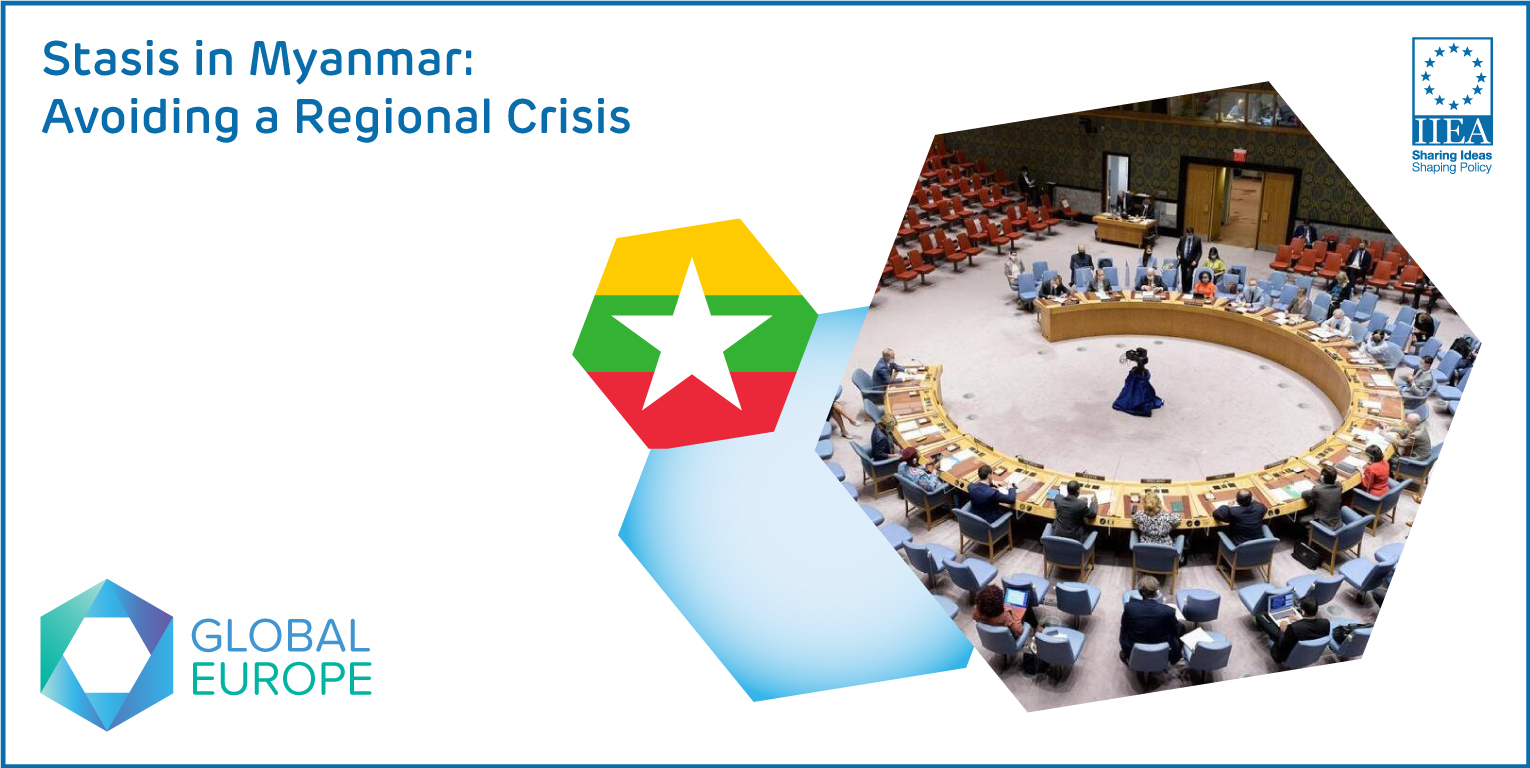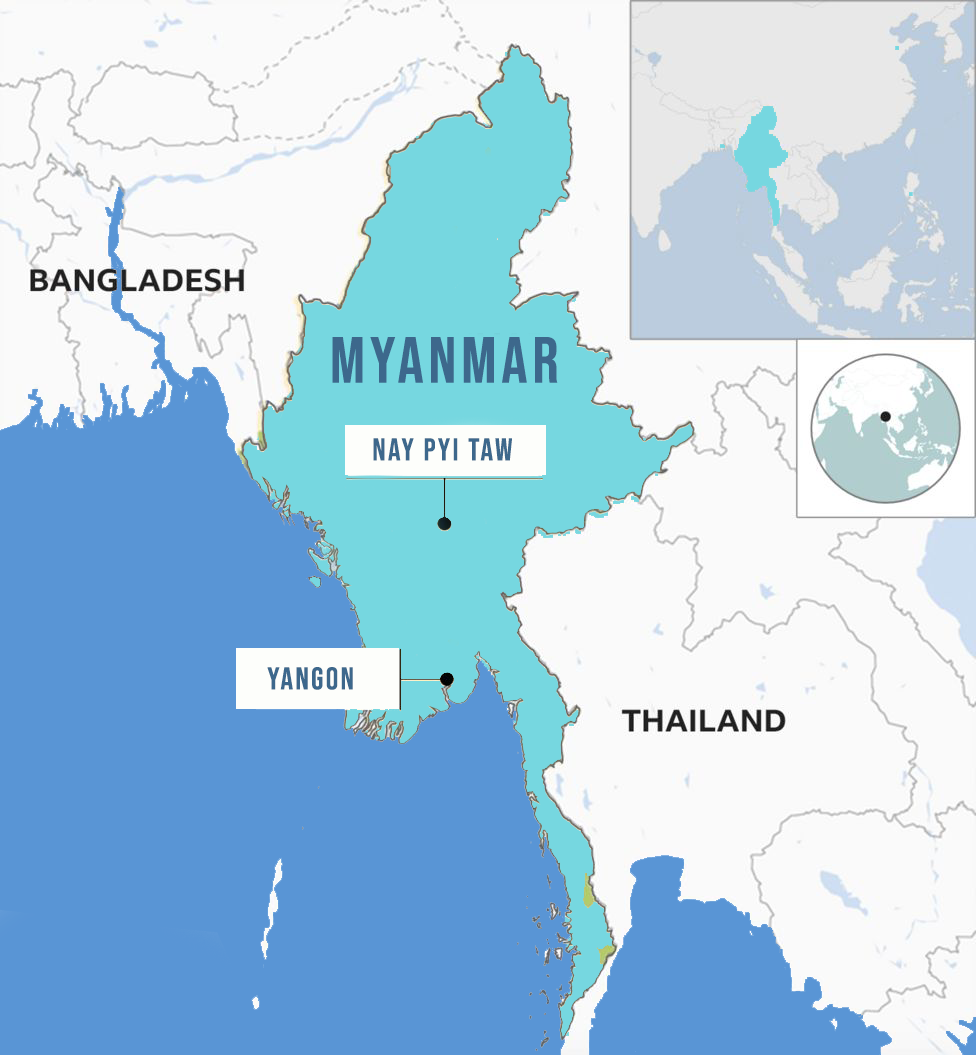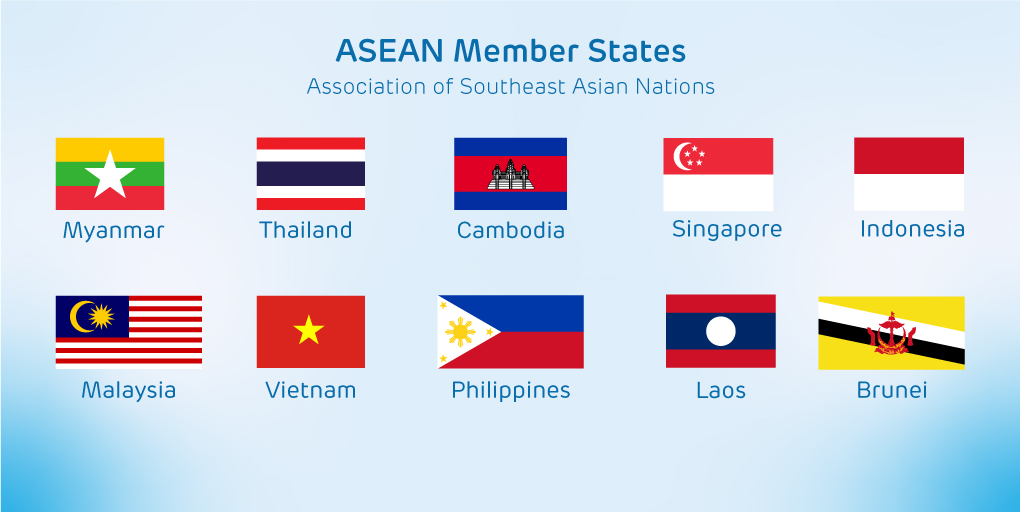Stasis in Myanmar: Avoiding a Regional Crisis

Since 1 February 2021, Myanmar (formerly known as Burma) has been subject to military rule at the hands of the Tatmadaw, which is led by Army General Min Aung Hlaing. The Tatmadaw seized control of the country from the democratically elected government in a coup d’état, bringing to an end the brief democratic transition which had been underway since the November 2020 elections.
The immediate aftermath of the coup witnessed a severe military crackdown on civilian protests, the arrest of President Win Myint and State Counsellor, and head of the National League for Democracy, Aung San Suu Kyi, as well as reports of mass human rights abuses.
According to Human Rights Watch, crimes committed by the military junta may amount to crimes against humanity. The Assistance Association for Political Prisoners has documented that police and soldiers have killed over 1200 civilians, including about 75 children, arbitrarily arrested over 10000 people, and tortured and raped an unknown number in custody.
Moreover, Myanmar is facing a humanitarian crisis as a result of a surge in COVID-19 cases, violence against healthcare workers, a chronic shortage of medical and sanitary equipment, deteriorating food security, and mass displacement of people.
Widespread international condemnation of the coup and the imposition of sanctions on the military regime by a number of countries, including the US and the UK, have thus far had little effect in restoring democracy to Myanmar. In light of the current situation, UN High Commissioner for Human Rights, Michelle Bachelet, has warned that Myanmar could be heading towards a full blown civil war and regional crisis akin to Syria.
Despite the urgency of the human rights and humanitarian situation and the threat to regional peace and stability, as pointed out by the UN High Commissioner, divisions within the UN Security Council have so far prevented it from taking meaningful action on Myanmar while the efforts of regional actors such as ASEAN[1] have likewise faltered.
This blog examines the response of the international community to the situation in Myanmar, with a particular focus on the UN Security Council and ASEAN. It further identifies three key initiatives which Ireland could lend its voice to at the Security Council in its capacity as a non-permanent member, which could prevent the situation from spiralling into a regional human rights and humanitarian catastrophe.

The response of the UN Security Council and ASEAN
In a Presidential Statement from March 2021, the Security Council expressed its “deep concern” at the ongoing situation and called for the release of all those wrongfully detained, including President Win Myint and State Counsellor Aung San Suu Kyi. It further called for unimpeded humanitarian access to all people in need and noted the “particular serious challenges” posed to the rights of Rohingya refugees.
Despite meeting privately on a number of occasions to discuss Myanmar since March, the Council has been hamstrung by a lack of unity, which has increasingly become its hallmark in recent times. One need only think back to the refusal of the US to allow a Council statement condemning the violence by all sides in the most recent Israeli-Palestinian hostilities in May of this year.
In this instance, resistance from Russia and China, both suppliers of arms to Myanmar, has prevented the Council from adopting a resolution which could impose sanctions on the military junta. China’s strong economic ties to Myanmar and longstanding public position of non-interference in the internal affairs of other states have made it wary of supporting Security Council action which it views as interference in the internal affairs of states.
Amongst other factors, Security Council inaction has arguably had the knock-on effect of emboldening undemocratic seizures of power in other parts of the world. Military coups in Mali, Guinea, and Sudan have been described by the UN Secretary-General as an “epidemic of coup d'états”, which require urgent Security Council action.
However, the agreement of a Security Council statement on 10 November 2021, which called for an “immediate cessation of violence […] safe and unhindered humanitarian access to all people in need, [and] full support for the Association of Southeast Asian Nations (ASEAN)”, indicates a possible recognition from China and Russia of the need for Security Council action to prevent the growing regional security threat posed by the situation in Myanmar.
In line with UN Secretary General Guterres’ call for “a unified international and regional response”, ASEAN has played an increasingly central role in efforts to find a peaceful solution to the crisis in Myanmar. Current efforts are focused on the implementation of a five-point plan, which was agreed by the leaders of ASEAN at an extraordinary meeting with General Min Aung Hlaing on 24 April 2021, and has the support of China, Russia and the US.
However, progress has faltered ever since the appointment of the ASEAN Special Envoy on Myanmar, Erywan Yusof, the Second Minister for Foreign Affairs and Trade of Brunei. The decision of the military to block a meeting of the Special Envoy with Aung San Suu Kyi prompted the Special Envoy to cancel his planned trip to the country. ASEAN then barred Min Aung Hlaing from attending its recent summit on the basis that Myanmar's junta was undermining the credibility of ASEAN.

Three key initiatives which Ireland could support at the UN Security Council
As a member of the Security Council, Ireland could use its position to push for three key initiatives, which would send a strong signal to the military junta that the international community is no longer willing to stand by and could complement the regional response being led by ASEAN.
First, Ireland could support the initiative to refer the situation in Myanmar to the International Criminal Court (ICC). Article 13(b) of the Rome statute grants the Security Council the power to refer situations to the ICC under chapter VII of the UN Charter where crimes under its jurisdiction have occurred. The fact that the ICC has already launched an investigation into crimes committed by the head of the military, Min Aung Hlaing, against the Rohingya people in 2017, would indicate the existence of credible evidence upon which the Security Council could act. Moreover, considering the focus on accountability as a core feature of its Security Council membership, Ireland could lend its voice to calls for crimes committed in Myanmar to be promptly referred to the ICC.
Second, Ireland could lend its support to a Security Council resolution to impose a legally binding arms embargo. An arms embargo on Myanmar would prevent the direct and indirect supply, sale, and transfer of all weapons and military assistance to the Myanmar military. Such an initiative would build upon the UN General Assembly resolution adopted in June 2021 and could play an important role in protecting the people of Myanmar from further atrocities. However, given that China and Russia are key suppliers of arms and training to Myanmar’s military, it seems unlikely that such an initiative would garner the necessary support at the Security Council.
Third, Ireland could support calls for the Security Council to impose targeted sanctions to supplement the existing international sanctions on certain individuals. As the former UN Special Envoy on Myanmar argued in a recent address to the IIEA, there is still space for additional sanctions which are targeted against the military leaders, as opposed to the general population. For example, Security Council sanctions on the State Administrative Council would impact the entire military leadership. Moreover, states could complement Security Council sanctions by tackling the military’s largest source of funding, which comes in the form of gas revenues. P5 members of the Council in particular could target foreign-financed oil and gas projects, such as those operated by PTT, Total, and Chevron, in order to starve the military of funds and send a powerful message to other coup leaders around the world.
Finally, as pointed out by the former UN Special Envoy on Myanmar, Ireland should continue to use its reputation as an honest broker as an elected member of the Council to be a bridge builder between the larger and smaller powers to encourage a peaceful and democratic solution to the crisis.
Conclusion
While achieving the above measures at a divided Security Council may seem optimistic at the current juncture, Ireland should nonetheless continue to use its voice at the Council to support initiatives designed to put pressure on a military regime which is carrying out atrocity crimes against its own population.
Despite a growing recognition from the Security Council and ASEAN of the need for a collective response to the crisis in Myanmar, the Myanmar military has continued to escalate its campaign to eliminate resistance to its coup and there are reports that it is blocking aid from reaching displaced civilians.
A much more urgent international response is needed if a catastrophe in the heart of Southeast Asia and beyond is to be avoided.
[1] The Association of Southeast Asian Nations, is an economic union comprising 10 member states in Southeast Asia (Brunei, Cambodia, Indonesia, Laos, Malaysia, Myanmar, Philippines, Singapore, Thailand, Vietnam)
